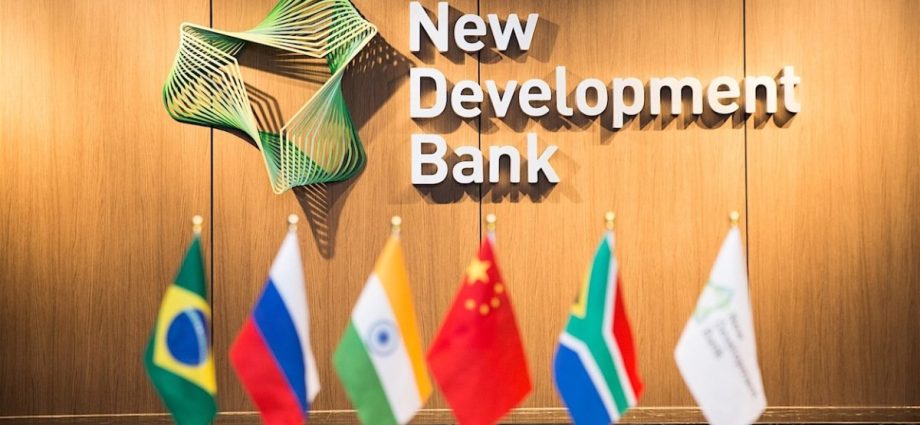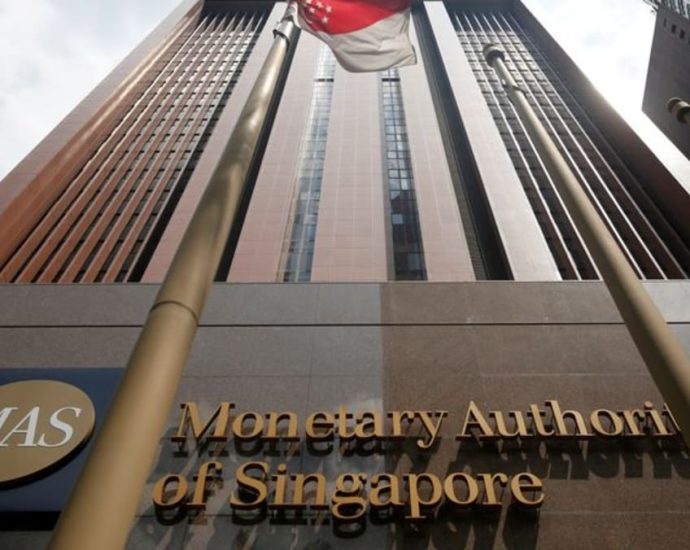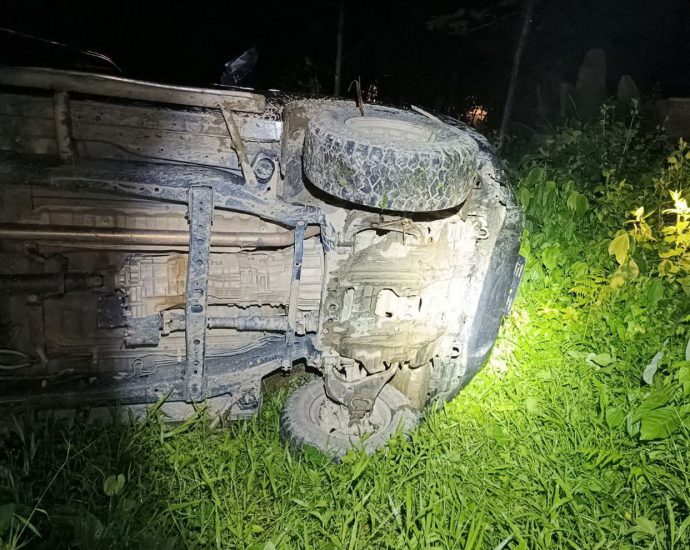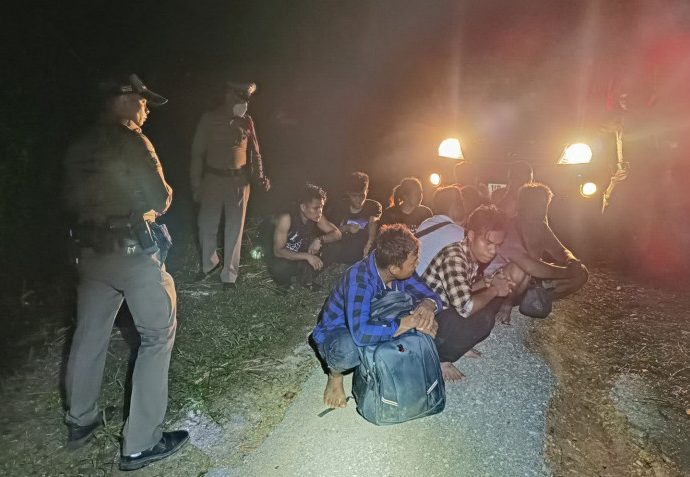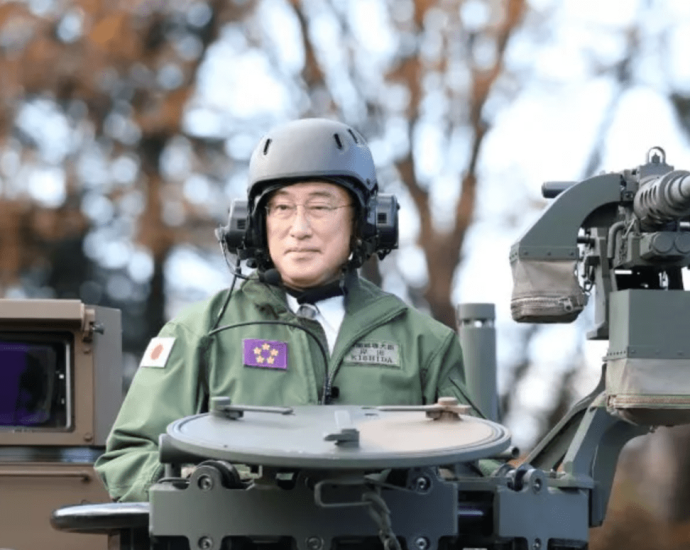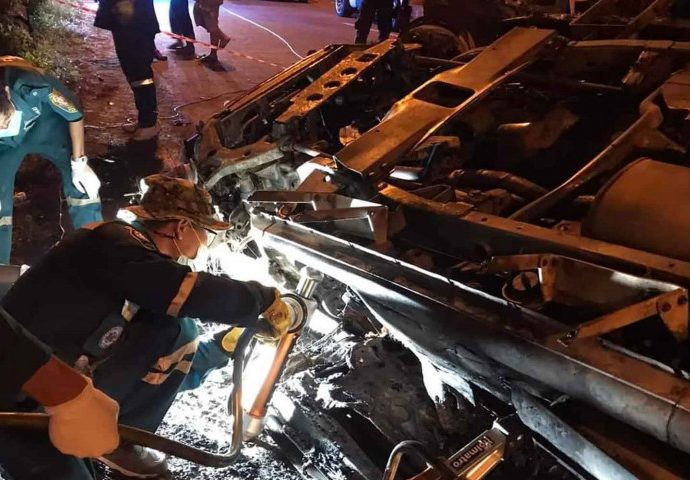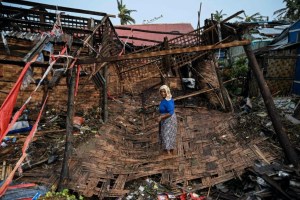BRICS expansion and a message to the West

Saudi Arabia is in talks on joining BRICS’ New Development Bank (NDB), a precursor to inclusion in a club that comprises Brazil, Russia, India, China and South Africa.
Extending membership to Riyadh would signal the bank’s interest in challenging the West’s monopoly over global financial institutions and represent a counterweight to rich-country clubs such as the Group of Seven, which are seen as neocolonial structures, especially in the Global South.
Saudi Arabia’s financial heft would give the BRICS – or BRICSS? – bank a more prominent role in multilateral funding and is aligned with the group’s plans to create alternative financial structures not dominated by Washington.
Critics often point out that the International Monetary Fund (IMF) and World Bank tend to be structurally under-represent the Global South in their decision-making, and are too closely aligned with Western foreign-policy goals. As global funds shrink away from investments in Russia and China, the NDB might offer an alternative.
In this context, the entry of Saudi Arabia to BRICS would send a message that its current and future members are likely to seek alternative structures of global governance and financing. The West seems to have taken note: The G7 this year invited India, Brazil, the African Union, Vietnam, Indonesia and South Korea as observers.
Double standards
Like current BRICS members, Saudi Arabia is neutral on the Russia-Ukraine conflict. One factor behind this is that while BRICS states are largely in sync with the post-World War II consensus on the sanctity of national borders and sovereignty, they share a mutual frustration with the West’s double standards in this area.
The calamitous aftermath of US president George W Bush’s Iraq invasion, which killed hundreds of thousands of Iraqi civilians, resonates as a painful reminder of that hypocrisy.
Where BRICS member states diverge markedly from their Western counterparts is on the principle of non-interference in domestic affairs, as they all operate under vastly different regime types and don’t comment on one another’s domestic politics. Politically, this is broadly the glue that keeps the BRICS together.
Saudi Arabia joining BRICS would cement this geopolitical trend while reminding Washington of its diminishing clout. Despite US President Joe Biden’s journey to Saudi Arabia last year to persuade the kingdom to raise oil output to offset high global energy prices, Saudi Arabia did the opposite.
That decision, which no doubt benefited Russian President Vladimir Putin – and which Riyadh justified on the basis of economics – was viewed as a way to distance the kingdom from Washington’s approach to Russia and China.
At the World Economic Forum this year, Saudi Finance Minister Mohammed Al-Jadaan said Saudi overseas funding would now come with strings attached: It would be tied to economic reforms in recipient countries. As such, Saudi Arabia’s BRICS membership would give the kingdom a seat at the table as the grouping seeks to reshape the global financial landscape.
Domestically, at a time when the kingdom is planning to diversify its economy, expand its tax base, and reduce its generous public sector, BRICS membership would provide a platform to showcase a new approach to external funding that is responsible and prudent.
China has likely played a role in championing Saudi Arabia’s BRICS bid. In March, Saudi Arabia joined the China-centric Shanghai Cooperation Organization (SCO) as a dialogue partner and was in active talks with China to conduct oil-related transactions in yuan.
Not that Saudi membership would raise many objections from other BRICS states. None would be averse to de-dollarization initiatives as a form of insurance against repeated American weaponization of the global dollar-dominated financial system.
After taking over the NDB’s presidency in March, Dilma Rousseff, a former president of Brazil, emphasized the bank’s future strategy to fund projects in local currencies, thus nurturing domestic markets and shielding borrowers from volatile currency-exchange fluctuations.
Expansion hurdles
As more countries express interest in joining BRICS, there are likely to be many challenges for its members.
First, the NDB is at least a decade from bypassing Western sanctions against Russia. To assuage investor concerns, the NDB suspended its financial involvement with Russia in March 2022 and has also stopped financing new projects in the country.
Second, there are territorial rivalries among the BRICS (China and India, for instance) that may hamstring the group.
Third, except for India, none of the other BRICS countries have the same rosy economic prospects they enjoyed at the group’s inception in 2009.
Fourth, the NDB has relatively little to show in terms of investments. Since 2015, it has funded about 96 projects to the tune of US$33 billion, compared with the World Bank’s disbursal of almost $67 billion for the year ending June 2022.
Fifth, member countries are separated by vast distances, have different political systems, are not fully complementary on trade, and aren’t fully aligned on geopolitical postures.
Finally, even on the issue of expansion, there are divergences on criteria among member states. Without resolving these issues, an expanding BRICS (or whatever acronym it transitions to) may collapse under the weight of its own contradictions.
Nonetheless, even as the world watches these developments unfold – with interest or trepidation – the potential BRICS expansion should be interpreted by the West as a message that it cannot advocate for an international geopolitical order or global financial system while also attempting to monopolize the definitions.
This article was provided by Syndication Bureau, which holds copyright.
Six former Great Eastern insurance agents issued prohibition orders following tax evasion convictions
SINGAPORE: The Monetary Authority of Singapore (MAS) on Thursday (Jun 1) issued five-year prohibition orders against six former agents of Great Eastern Financial Advisers (GEFA) for fraudulent and dishonest conduct. This follows the convictions of Chan Jun Yi, Chanel Quah Hui Wen, Lim Zhan Yi, Sherlin Chia Hee Ping, Jackie TangContinue Reading
Local grocers headed accused Chinese fraudstersâ firms
Duo were paid B4,000 a month for each of the 48 shell companies they represented, say police

Police have found that two grocers in Bangkok acted as directors of 48 shell companies linked to a Chinese couple facing charges of running a 10-billion-baht international fraud scheme.
The two grocers, who had shops in Thon Buri, were paid 4,000 baht a month for each company they represented, said Pol Maj Gen Amnat Traipote, deputy commissioner of the Cyber Crime Investigation Bureau.
The companies were legally registered with the Department of Business Development to engage in activities including tour guide services, brokerage, wholesale, holding and property trade.
Thai shareholders held 51% in each company and Chinese nationals the rest. The businesses had 5 million baht in registered capital each and were all headquartered at houses in the same luxury housing estate in Prawet district where the Chinese couple were arrested on Wednesday.
Police are now checking the tax records of the companies, Pol Maj Gen Amnat said on Thursday.
Shaoxian Su, 31, and his girlfriend Keyi Ye, 25, were arrested at their 67-million-baht house in The Palazzo Srinakarin estate in Prawet on charges of public fraud and money laundering.
Police say the couple lured people in many countries into fake investments in digital currencies and other assets, with damages estimated at 10 billion baht.
Police suspect companies in their network had bought 19 luxury houses in the same estate in Prawet and leased them out to other Chinese people.
On Wednesday police impounded hundreds of millions of baht worth of assets from the couple, including expensive Bearbrick dolls.
One illegal migrant killed, 10 others arrested after pickup truck overturns
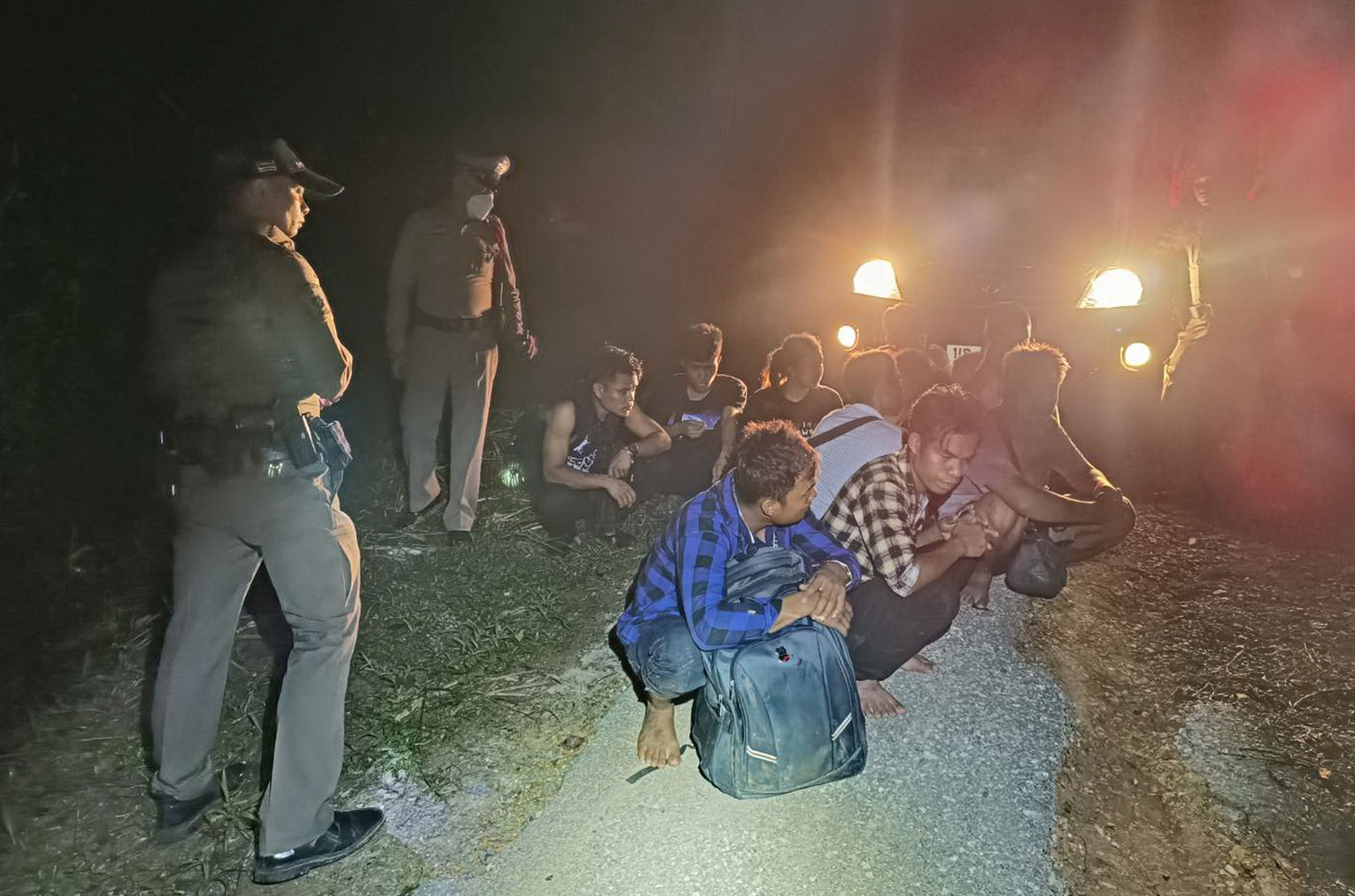
KANCHANABURI: One illegal migrant from Myanmar was killed and 10 others arrested after a pickup truck carrying them overturned in Sangkhla Buri district late on Wednesday night. A police officer was also injured after being hit by one of three pickup trucks smuggling migrants.
At around 10pm, a joint team of soldiers, police and local authorities spotted the three suspected pickup trucks speeding along a local road at Sanehpong village, Moo 3, in tambon Nong Lu.
Officers signalled the vehicles to stop for a search, but the drivers accelerated and fled. One of the trucks hit and injured Pol Capt Pathiphan Yawan, deputy crime suppression chief at Sangkhla Buri station. The officer was rushed to Sangkhla Buri Hospital.
Shortly after, the team received a report that a pickup truck overturned into a roadside ditch near a homestay in Nong Lu.
Upon arrival, the officers found that the vehicle was one of the three trucks involved in the smuggling operation. One man from Myanmar was found dead inside the wreckage.
The officers inspected the area and found a group of people hiding in a nearby forest. All were confirmed to be illegal migrants from Myanmar. They comprised eight men and two women. The dead man was later identified as Zaw Leng Gu, 22.
All migrants were handed over to police at Sangkhla Buri station for legal action.

One of three pickup trucks carrying illegal migrants overturns in Kanchanaburi’s Sangkhla Buri district late on Wednesday night. (Photo supplied/Piyarat Chongcharoen)
One illegal migrant killed, 10 arrested after pickup overturns

KANCHANABURI: One illegal migrant from Myanmar was killed and 10 others arrested after a pickup truck carrying them overturned in Sangkhla Buri district late on Wednesday night. A police officer was also injured after being hit by one of three pickup trucks smuggling migrants.
At around 10pm, a joint team of soldiers, police and local authorities spotted the three suspected pickup trucks speeding along a local road at Sanehpong village, Moo 3, in tambon Nong Lu.
Officers signalled the vehicles to stop for a search, but the drivers accelerated and fled. One of the trucks hit and injured Pol Capt Pathiphan Yawan, deputy crime suppression chief at Sangkhla Buri station. The officer was rushed to Sangkhla Buri Hospital.
Shortly after, the team received a report that a pickup truck overturned into a roadside ditch near a homestay in Nong Lu.
Upon arrival, the officers found that the vehicle was one of the three trucks involved in the smuggling operation. One man from Myanmar was found dead inside the wreckage.
The officers inspected the area and found a group of people hiding in a nearby forest. All were confirmed to be illegal migrants from Myanmar. They comprised eight men and two women. The dead man was later identified as Zaw Leng Gu, 22.
All migrants were handed over to police at Sangkhla Buri station for legal action.

One of three pickup trucks carrying illegal migrants overturns in Kanchanaburi’s Sangkhla Buri district late on Wednesday night. (Photo supplied/Piyarat Chongcharoen)
Japanâs nuclear weapon dilemma growing more acute
The contemporary security context has sharpened Japan’s dilemma regarding nuclear weapons.
Japan is surrounded by several nuclear-armed neighbors and depends on US extended deterrence rather than its own nuclear deterrent. An opportunity was embedded in Japan’s role as G7 chair for the 2023 summit in Hiroshima, the site of the 1945 nuclear attack and Prime Minister Fumio Kishida’s electoral constituency.
The dilemma is one Japan has faced for decades. In 1967, then-prime minister Eisaku Sato introduced the Three Non-Nuclear Principles, adopted by the Diet, declaring that Japan will not possess, manufacture or introduce nuclear weapons.
In 1968, Sato reaffirmed this goal in his Four Pillars of Nuclear Policy, adding commitments to work toward global nuclear disarmament, nuclear energy’s peaceful use and continued reliance on US extended deterrence.
In 1976, Japan ratified the Non-Proliferation Treaty (NPT) and in 1997 the Comprehensive Nuclear Test Ban Treaty. Japan has consistently submitted draft resolutions supporting disarmament activities to the UN General Assembly and participated in programs such as the Non-Proliferation and Disarmament Initiative.
But internal debate has persisted. A series of senior politicians — including a former minister and vice minister of defense, and a prominent opposition leader — have expressed concern about Japan’s lack of its own nuclear deterrent, especially against China.
Former chief cabinet secretary Yasuo Fukuda claimed amending the Three Non-Nuclear Principles was “likely” after his deputy declared possessing tactical nuclear weapons would be constitutional.
A nuclear-armed North Korea sparked similar remarks. In 2006, after North Korea’s first nuclear test, the Liberal Democratic Party’s Policy Research Council Chairman Shoichi Nakagawa proposed a public discussion of nuclear weapons acquisition.
In 2017, former defense minister Shigeru Ishiba proposed hosting US nuclear weapons on Japanese soil but was dismissed by the defense minister at the time.

Despite its technical capabilities, Japan continued to eschew acquisition, relying instead on the United States’ nuclear umbrella. Japan’s security dilemmas intensified recently, as leaders and the public perceive heightened belligerence from its nuclear-armed neighbors.
North Korea’s recurrent nuclear and missile tests of growing sophistication into Japan’s vicinity, along with direct verbal threats, sometimes require evacuating Japanese civilians.
In his aggressive nuclear rhetoric, President Vladimir Putin’s Russia resembles North Korea and has suspended peace treaty negotiations with Japan over Northern Territories. Japan also perceives China’s “no limits” embrace of Putin and “wolf warrior” diplomacy to have replaced China’s “peaceful rise.”
China’s East and South China Sea military activities and firing of ballistic missiles into Japan’s exclusive economic zone have escalated tensions. Equally concerning is China’s abandonment of its minimal nuclear deterrent capability of about 400 nuclear warheads, which is estimated to increase to 1,500 by 2035.
Putin’s nuclear rhetoric led even Chinese President Xi Jinping to call on the international community to “jointly oppose the use of, or threats to use, nuclear weapons.” Russia’s invasion of Ukraine reignited Japan’s concerns, with former prime minister Shinzo Abe encouraging a national discussion on nuclear weapons-sharing arrangements with the United States.
But Kishida, along with Defense Minister Nobuo Kishi, expressed that such an arrangement was “unacceptable given [Japan]’s stance of maintaining the Three Non-Nuclear Principles.”
The durability of Japan’s commitment to abiding by the NPT raises an important consideration. Some security analysts have predicted Japan would seek its own nuclear deterrent in tandem with three of its neighbors’ nuclearization. Yet Japan’s decades-old nuclear abstention defies those predictions, which neglected other considerations.
Early in the Cold War, Japan’s commitment to global economic interdependence prioritized stability and global market access. This shaped incentives to remain a non-nuclear weapons state and reduce risks to its economy. Japan also capped defense spending at 1% of GDP.
While by 2020 China had surpassed the United States as Japan’s top export market, Japan still relied on US extended deterrence despite its own technological capabilities.
Unlike in South Korea, Japanese public opinion remains opposed to nuclear weapons acquisition. A 2019 national survey found 75% of respondents supported ratifying the Treaty on the Prohibition of Nuclear Weapons.
To reassure the public, Japan’s leaders launched the largest military expansion since 1945. While Article 9 of the Constitution famously renounced the right to maintain military forces, in 2015 the Diet voted to allow Japanese forces to deploy overseas to defend allies.
In 2017, the 1% of GDP cap in defense expenditures was superseded, and in 2022 Kishida raised it to 2% by 2027 — on track to become the third-largest defense budget globally. Joint military drills have increased, and Japan has signed new defense agreements with Australia and the United Kingdom.

Japan also planned its G7 chairmanship of the Hiroshima summit carefully. Just as it championed the Comprehensive and Progressive Trans-Pacific Partnership, Japan has sought leadership in other realms.
In 2022 Kishida established the International Group of Eminent Persons for a World without Nuclear Weapons and became the first Japanese prime minister to attend the NPT review conference, where he presented the anti-nuclear “Hiroshima Action Plan.”
In early 2023, as Xi spent three days visiting Putin in Moscow, Kishida visited Kyiv. He invited Ukrainian President Volodymyr Zelensky to attend the G7 summit, concerned with troubling parallels between threats to Ukraine and threats in the Indo-Pacific.
Kishida’s article in Foreign Affairs, published on the eve of the summit, expressed his commitment to reinforcing “a free and open international order.” Reaffirming the principles of an April 2023 G7 communique, Kishida envisioned “a world without nuclear weapons.”
To set the stage, Kishida launched the G7 summit by greeting G7 leaders at the Hiroshima Peace Memorial Park. While the Hiroshima Vision on Nuclear Disarmament disappointed nuclear abolitionists, it also reaffirmed Japan’s longstanding abstention from acquiring its own nuclear deterrent, even at this critical juncture. Japan has stayed its course.
John T Deacon is a Graduate Student at the University of California, Irvine. Etel Solingen is The Distinguished Tierney Chair in Global Peace and Conflict at the University of California, Irvine.
This article was originally published by East Asia Forum and is republished under a Creative Commons license.
Offenders who possess large amounts of controlled drugs will face up to 30 yearsâ jail from Jun 1

SINGAPORE: Offenders caught with large quantities of certain Class A controlled drugs, such as cannabis and methamphetamine, will face stiffer penalties – including caning – from Thursday (Jun 1), said the Ministry of Home Affairs (MHA).
The previous maximum punishment for possession of any controlled drug, regardless of weight, was 10 years’ jail, a fine of up to $20,000, or both.
Now, offenders can be caned depending on the amount of drugs they possess. Mandatory minimum sentences for certain weight thresholds have also been set, while the maximum punishment will now be 30 years’ jail and 15 strokes of the cane.
Amendments to Singapore’s main drugs legislation, the Misuse of Drugs Act, were passed in parliament in March.
The eight controlled drugs that this will apply to are cannabis, cannabis mixture, cannabis resin, cocaine, diamorphine (pure heroin), methamphetamine, morphine and opium.
For example, those who possess less than 10g of diamorphine can be jailed for up to 10 years or fined up to S$20,000, or both. There is no statutory minimum.
Those convicted of possessing at least 10g but less than 15g of diamorphine will face a minimum of 10 years’ jail and five strokes of the cane. The maximum sentence is double that.
Those who possess more than 15g will receive at least 20 years’ jail and 10 strokes of the cane. The maximum sentence 30 years’ jail and 15 strokes of the cane.
Road accident claims 4 lives, injures 6 migrants in Ayutthaya

AYUTTHAYA: Four people were burnt to death in a Bangkok-bound SUV that overturned while carrying migrant workers past Bang Pa-in district at 12.20am on Thursday.
The incident happened on Highway 32 in front of Chiang Rak Noi School in tambon Chiang Rak Noi. The SsangYong Musso SUV, registered in Bangkok, flipped over and went up in flames shortly after residents had heard an explosion.
Six severely injured migrants, comprising three men and three women, managed to escape from the vehicle just before the explosion. They were taken to Wang Noi and Bang Pa-in hospitals.
Four others, including three migrant women and a Thai male driver, died in the fire that engulfed the vehicle.
All of the migrants from Myanmar had illegally entered Thailand, according to reports.
Police assumed the driver was speeding and lost control of the SUV at the location adjacent to Phahonyothin Highway. Witnesses also reported hearing screeching sounds followed by a loud bang.
The land is burning
This year’s scorching heatwave across much of Southeast Asia, which saw daily temperatures soar past 40 degrees Celsius, is incendiary warning of things to come.
Average temperatures have been increasing for decades; Thailand, Myanmar, and Vietnam are among the countries most affected by climate change and global warming this century.
As temperatures rise in a region of over half a billion people reliant for the most part on locally-grown crops such as rice, food production and labor productivity will be severely affected.
The impact on human security will in turn affect socio-economic stability and upset regional relationships. Climate change is already a key driver of conflict in Africa; Southeast Asia is not that far behind.
For the time being, climate change is imposing hardships on people already suffering in conflict zones. Myanmar is considered one of the most vulnerable countries in the world to extreme weather events such as heatwaves, floods and cyclones.
In central Myanmar’s dry zone, determined resistance to military-imposed rule since February 2021 occurs in areas already ravaged by drought and rising average temperatures.
In Sagaing and Magway, increasingly parched regions heavily dependent on agriculture, farmers have been struggling for years to survive. Migration northward and eastward towards China and Thailand has been the main response.
Now, even if people manage to migrate to cities and more developed areas of the central region of Myanmar, scarcity of fresh water and electricity makes existence hard in situations where work must be carried out at times in temperatures above 40 degrees Celsius.
Managing this slow onset of climate change impact has been thwarted by limited state resources and armed resistance to central authorities. This was evident in the wake of Cyclone Mocha, the category five super cyclone that hit Rakhine state in mid-May.
Quite apart from the difficulty of entering affected areas controlled by resistance forces, the UN cited obstacles to providing much-needed aid posed by banking restrictions and the need for Yangon’s travel authorization.
Although detailed information and data is scarce, Myanmar may be the first country in Southeast Asia to see the debilitating nexus between climate change and conflict impact human security severely.

Elsewhere in the region, this year’s excessively hot dry season brought with it economic and health problems: the combination of high temperatures and air pollution from the burning of crop stubble affected the health and residents in Northern Thailand and depressed the critical tourist industry.
In Chiang Mai, the air quality index measuring particulate matter (PM 2.5) remained above 300 for two weeks from the end of March— 20 times above the upper limit recommended by the World Health Organization.
As a result, hotel occupancy was running below 50% in a traditionally high season for tourists and more than two million people were reportedly treated in hospitals for respiratory effects.
While the difference with Myanmar is that there is no paralyzing internal conflict, studies point to the appearance of local tensions – between urban residents affected by the pollution and provincial agrarians accused of the crop burning.
Ahead of a general election in mid-May, the Thai government mobilized to order people in the worst affected areas to work from home and reached out to neighboring countries to see about reducing crop stubble burning.
These moves will become routine in the region as climate change impact intensifies every year. But the question is how well prepared are regional governments for more serious social and economic fallout – and what needs to be done to help the region more effectively respond?
Perhaps the tools of dialogue and mediation can be helpful.
In conflict zones like Myanmar, as in parts of Africa, where governance is impaired by conflict, it will be important to help communities help themselves.
But even as top-down solutions are out of the question, the severe impediments imposed on local civil society and welfare organizations make it hard to extend help and advice to affected communities.
In Myanmar, the UN notes there is “a high risk that natural disaster relief – in the case of, for instance, cyclones, flooding and drought – will be undermined or be used as an oppressive political tool, with the military preventing humanitarian organizations from helping affected populations.”
To cope with the worsening situation, international aid agencies are urged by experts to tap into local civil society networks, especially in conflict areas. In more stable areas, where government and civil society operate unimpeded, there are still significant challenges to managing the situation.
Blame for environmental degradation is easily placed on vulnerable groups in society. Data-sharing is a major obstacle between states in a region where sovereignty is a barrier to cooperation. Deep mistrust and misalignment between state structures and civil society make for slow progress on designing effective coping strategies and policies.
Perhaps the biggest challenge of all will be managing climate change displacement. Whether voluntary, forced or planned, and although not so evident today, large-scale movement of people will soon become a feature of the region’s response to climate change.

Natural disasters displaced almost 8 million people in Indonesia, Myanmar, Vietnam and the Philippines in 2021, according to the Internal Displacement Monitoring Centre in Geneva. The World Bank estimates that between 3.3 and 6.3 million people will be displaced by climate change in the Lower Mekong region between now and 2050.
Strong government structures in some countries will help ensure that planned re-location can be arranged. The bigger challenge will be cross-border migration that impacts labor and other human rights, for which inter-state monitoring and arrangements will be needed.
In sum, given that rising temperatures and drought, not to mention the rapid onset of extreme weather events, are already taking a toll on human security in the region, more organized and institutional anticipation and planning needs to be broached both at the national and inter-state level.
Relying on international agencies and global initiatives won’t necessarily generate responses well-tailored to the region or address the specific constraints on cooperation. Rather, a more concerted minilateral approach is urgently needed.
Michael Vatikiotis is Senior Adviser at the Centre for Humanitarian Dialogue.
Australian soldier loses landmark defamation case

Australia’s most-decorated living soldier Ben Roberts-Smith has lost a historic defamation case against three newspapers which accused him of war crimes in Afghanistan.
The Australian newspapers were sued over several articles which also said he had bullied peers and punched a woman with whom he was having an affair.
It is the first time in history a court has assessed allegations of war crimes by Australian forces.
The judge said the lengthy civil trial had proved the murder allegations – denied by Mr Roberts-Smith – were substantially true.
Mr Roberts-Smith has not been charged over any of the claims and no findings have been made against him in a criminal court. He was not in court for Thursday’s judgement.
This breaking news story is being updated and more details will be published shortly. Please refresh the page for the fullest version.
You can receive Breaking News on a smartphone or tablet via the BBC News App. You can also follow @BBCBreaking on Twitter to get the latest alerts.

